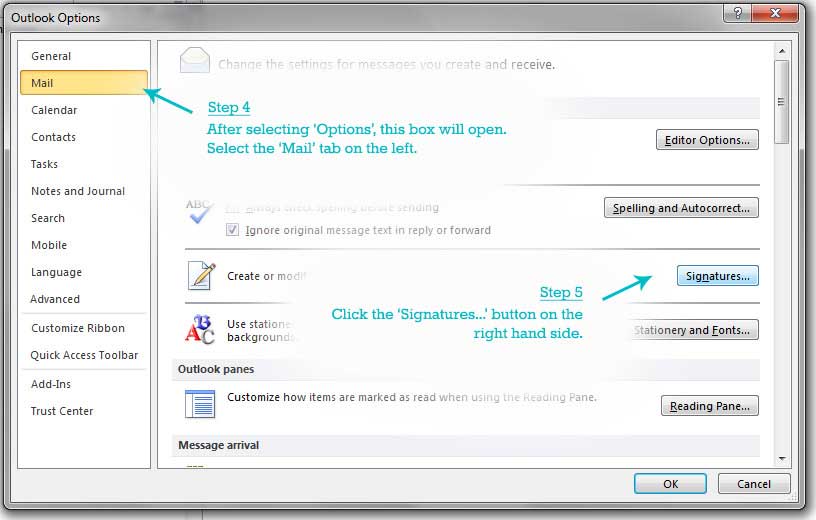
Step 4: Replace Placeholder Text With Your HTML CodesĮrase all content in the placeholder signature file and paste your HTML signature codes. You may right-click on the file and select the option to open with Notepad. Within the Signature Folder, locate the file that you have created in Step 1. Step 3: Find and Open the New Signature file Note: Make sure to show hidden files and folders. Here are the locations on the hard drive where Outlook places signature files:Ĭ:\Users\username\AppData\Roaming\Microsoft\SignaturesĬ:\Documents and Settings\username\Application Data\Microsoft\Signatures Step 2: Open Outlook’s Signature Folder on Your Computer Give the new signature a name you can remember. Click “ New” to create a new placeholder signature. In Outlook, go to File > Options > Mail and click on “ Signatures“. Read my tutorial, Create a HTML Signature in Apple Mail on Lion OS X 10.7 for an overview on how to create your own HTML Signature or for a small fee, I can create one for you. So here it is! This presumes that you already have a well-designed HTML email signature like the ones I create for my clients. From the New Messages list, select the signature you want to include on all new emails.Since I wrote the tutorial, Creating an Attractive HTML Signature in Apple Mail, many people have asked for instructions in getting their very own customized HTML email signature installed for Microsoft Outlook (Version 2010 – Windows).



Click on the New option to create a new signature. From there, find the Include group and click Signature, and then click Signatures. Open a new message and locate the Message tab.Log into your Outlook 2010 email client.Creating an email signature in Outlook 2010 Below are instructions that teach you how to create and add your own custom email signature within Outlook 2010 email client. Regardless of what you wish to say with your signature, it is much easier if it is automatically added to the end of every email instead of having to add it manually each time you create and send an email. Sometimes they are also used to give website links or even memorable anecdotes. Email signatures are traditionally used to display the sender’s name and contact information at the end of an email.


 0 kommentar(er)
0 kommentar(er)
